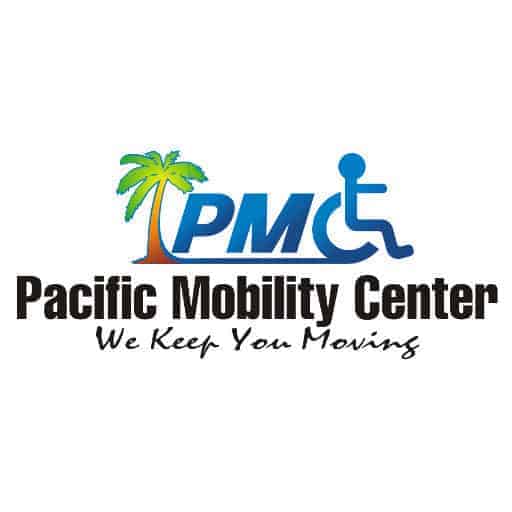Mobility Centers Empower Seniors to Age in Place with adaptive equipment and devices that provide what the consumer needs today, at this stage, such as home and vehicle lifts.
Aging in place refers to meeting the senior where they are at, both physically and mentally. Empower the senior in your life with resources and mobility devices that make everyday life a bit easier as they age. Every senior deserves the chance to age in place, preserve their autonomy and live independently despite the challenges that the aging process presents. Mobility centers, such as Pacific Mobility, can solve these conundrums with adaptive devices and equipment to make everyday life easier, safer, and more comfortable. This company offers solutions aimed at preserving quality of life for the clients that they serve.
Some things that can present hurdles for seniors are:
- Having access to all areas of the home or workplace are key. This includes being able to traverse stairs, use the bathroom independently, and venture outside.
- Nearly 285,000 people are injured by a fall in the bathroom each year, and around 14% of these falls lead to hospitalization or a visit to the emergency room. Mobility devices such as grab-bars and shower-buddies can help prevent nasty falls and subsequent injuries.
- Limited mobility can also lead to a decrease in social engagement among seniors, which can lead to isolative behaviors and withdrawal.
- Physical disability directly impacts mental health and well-being, often causing depression among seniors. In fact, those with chronic illnesses or conditions are at risk two-to-ten times higher for depression and mood disorders.
- Physical impairments can also eat-away at an individual’s autonomy. The ability to stay in one’s own home can make a significant difference to aging adults.
Equipment and mobility devices.
When looking for solutions around the home, mobility aids can dramatically impact access and safety. From the bathroom to the garage, specialized equipment can restore freedom and convenience for those seeking independence as well as their caregivers.
Some adaptive devices to consider include:
-
Home lifts.
-
Bathroom aids.
-
Vehicle lifts.
-
Rails.
-
Grab-bars.
-
Ramps.
-
Wheelchairs and walkers.
Know that lifts can be installed both indoors and out- so accessing second-levels of the home, outdoor areas, porches, decks, and gardens are feasible for those in chairs or that use walkers. Bathroom aids may include patient-lifts that help with ADLs (activities of daily living), making it far safer for both the consumer and the caregiver.
Lifestyle changes.
Don’t overlook the simple things when attempting to help empower seniors to age in place; this includes any aspect of the home environment that poses a safety hazard, injury risk, or that makes the client uncomfortable. Ask yourself a few questions to determine if there are some simple lifestyle changes that could make a difference around your home:
- Assess the floor underneath your feet; are there rugs or edges that could cause a fall? Do away with runners and carpets that could impede access or cause a safety risk.
- Are the cabinets within easy reach? Reaching for items in cabinets or cupboards is dangerous, and causes many senior falls. Instead of using a chair or foot-stool which can present fall-risk, invest in a “grabber” or reaching-tool.
- How is the lighting? Are switches accessible and easy-to-reach? Consider foot-lights, exterior motion-sensors, and dimmer switches to keep the environment well-lit and safe.
- Is there room for your senior to move about freely? How about something to help support them as they move about their home? Arrange furniture around the perimeter of the rooms so that there is as much open-area as possible, particularly when the senior uses a walker or wheelchair. Ensure that there is something to grab on to, if needed, but not obstructing the path through the space.
- Did you hear something? If you are worried that your senior is not hearing something, augment doorbells and telephones with lights. This provides further indication of a visitor or a call, which can help those with a hearing impairment.
Mobility Centers Empower Seniors to Age in Place.
To ensure safety and empower seniors to live as independently as possible, Pacific Mobility offers high-quality equipment and devices. The difference between a retailer and a mobility center, such as Pacific Mobility, is the one-on-one attention and service delivery to ensure optimal satisfaction for the consumer.
Some things that mobility centers offer to help seniors include:
- Comprehensive needs-assessment to find the best mobility solutions.
- Professional installation on-site.
- Personal instruction and guidance.
- Customization to optimize comfort.
- Safety mechanisms and recommendations for use.
- Service after the sale and customer support.
The U.S. Centers for Disease Control and Prevention describes aging in place as being able to live in one’s own dwelling independently, safely, and comfortably, regardless of age. Mobility aids offer seniors the opportunity to do just that. Consult with the mobility experts at Pacific Mobility for needs assessment and consultation regarding devices, installation, and costs.
President, Husband, Father, Grandfather Graduate of UC Davis- Bio Sci Major- Go Aggies! Jeff has extensive experience in all of Pacific Mobility’s products and services, and specializes in accessibility products as well as stairlifts, ceiling lifts and custom wheel chairs. His hobbies include spending time with family, gardening, mountain biking, exercising and off road motorcycle riding.
24 years as Owner/President of Pacific Mobility Center – selling, installing, and servicing stairlifts, porch lifts, ceiling lifts, pool lifts, handicap ramping, specialty wheelchairs, scooters, power wheel chairs, and other power mobility devices
Certified Environmental Access Consultant since 2008
Licensed General Contractor since 1998
Certified Aging in Place Specialist since 2016
Board Member for Home Access Professionals
Member of Association of Members of the Accessibility Equipment Industry (AEMA)




